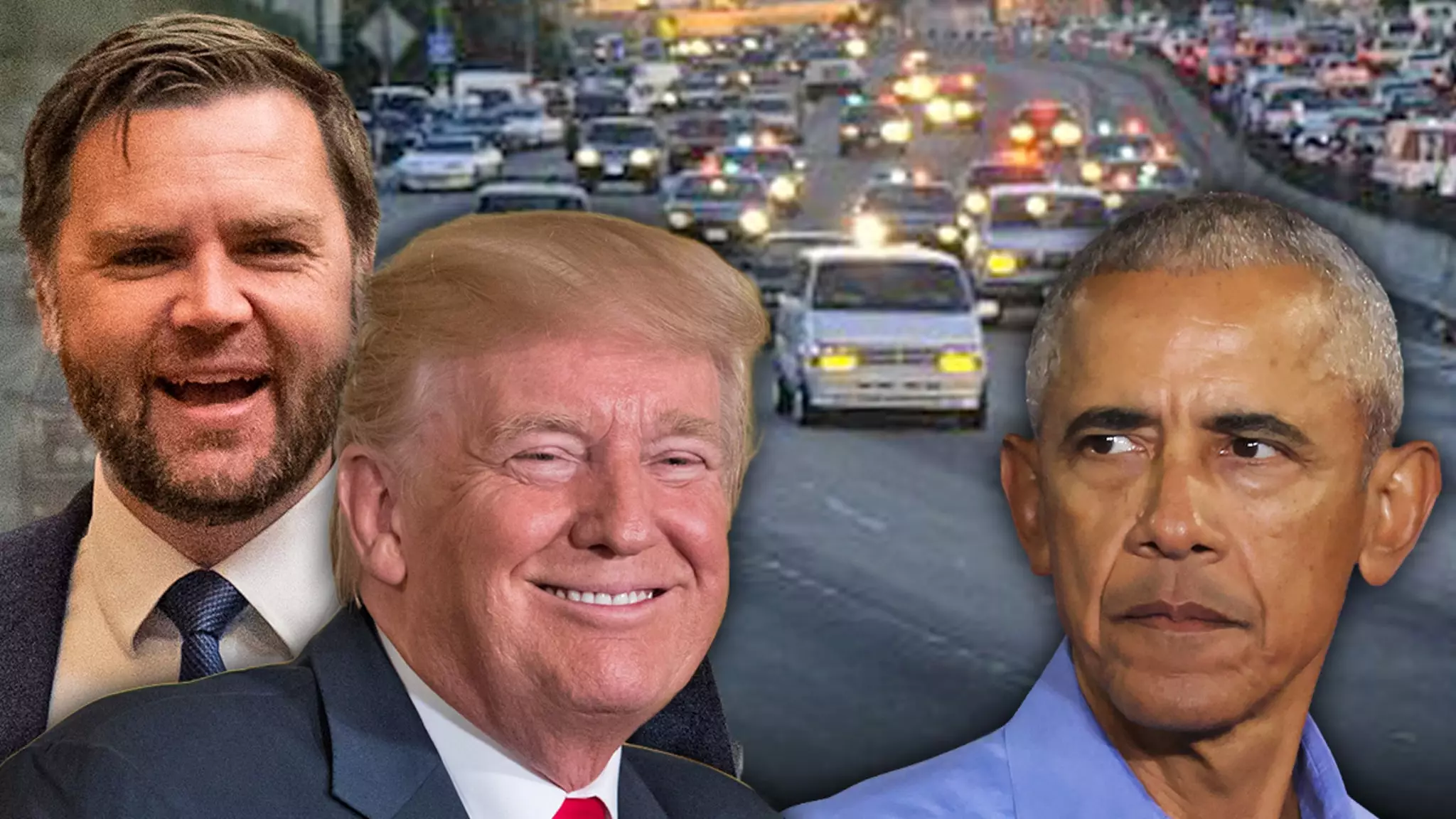In the modern political landscape, social media has become an arena for spectacle as much as policy debate. The recent controversial post by President Trump exemplifies this trend, using a provocative meme to draw parallels between himself, J.D. Vance, and Barack Obama. The image, reminiscent of O.J. Simpson’s infamous 1994 police chase, superimposes the figures into a narrative rooted deeply in American pop culture. While ostensibly humorous, this act of visual storytelling reveals a broader strategy: shaping perceptions through shock value and historical allusion. It underscores how politicians now craft their brand not just through policies but through carefully curated images, often blurring the lines between fact and fiction.
This tactic serves multiple purposes. It rally’s supporters by invoking emotion, stokes partisan divides, and distracts from complex policy issues with sensational imagery. What’s particularly revealing is President Trump’s choice to repost a meme originating from his son, Donald Trump Jr., emphasizing the importance of intra-family messaging as part of political communication. Such virality transforms political discourse into meme wars, where the substance often takes a backseat to symbolism.
The Power of Narratives in Political Conflict
The meme’s underlying message relates to ongoing allegations—an attempt to cast doubt on allegations of collusion and conspiracy that have plagued Trump’s presidency. By invoking the imagery of an FBI chase and associating it with political adversaries—here illustrated through Vance and Obama—Trump seeks to undermine his critics and redefine the storyline favorably. This aligns with his broader strategy of framing narratives around strength and victimhood, creating a dichotomy that energizes supporters while disorienting opponents.
However, this tactic raises critical ethical questions about the use of imagery and storytelling in politics. Is it merely provocative fun, or does it contribute to the erosion of civility and truth? The response from Obama’s spokesperson highlights this tension, dismissing these allegations as “ridiculous,” underscoring how narrative battles often devolve into name-calling and dismissals rather than substantive debate.
Beyond the immediate spectacle, this meme reflects a deeper challenge: the modern voter’s susceptibility to emotionally charged imagery. In an age where information is instant and superficial, leaders often prioritize headlines over dialogue, valuing emotional reactions over thoughtful engagement. This approach risks trivializing serious issues—like foreign interference and national security—reducing them to viral moments instead of policy concerns.
Implications for Democratic Discourse
The current political environment is characterized by a relentless battle over perception. When figures like Trump employ provocative memes to shift focus or attack opponents, they contribute to an environment where truth becomes secondary to spectacle. This not only polarizes voters further but also fuels misinformation, as viewers may accept such imagery at face value without seeking context.
Moreover, the ongoing claims of conspiracy and collusion echo a broader trend of delegitimizing institutions and adversaries in pursuit of political gain. The 2020 Senate investigation, which found some interference, did little to quell the narratives, instead fueling more sensational claims. This cycle perpetuates distrust in government and media, making it increasingly difficult for genuine political discourse to thrive.
In the end, the strategic use of these memes reveals more about the current state of political communication than about any actual policy debate. It demonstrates a shift toward an era where storytelling, symbolism, and oftentimes misinformation, take precedence over facts. Whether this will strengthen or weaken the fabric of democracy remains to be seen, but what is certain is that in this new arena, image often triumphs over substance.

